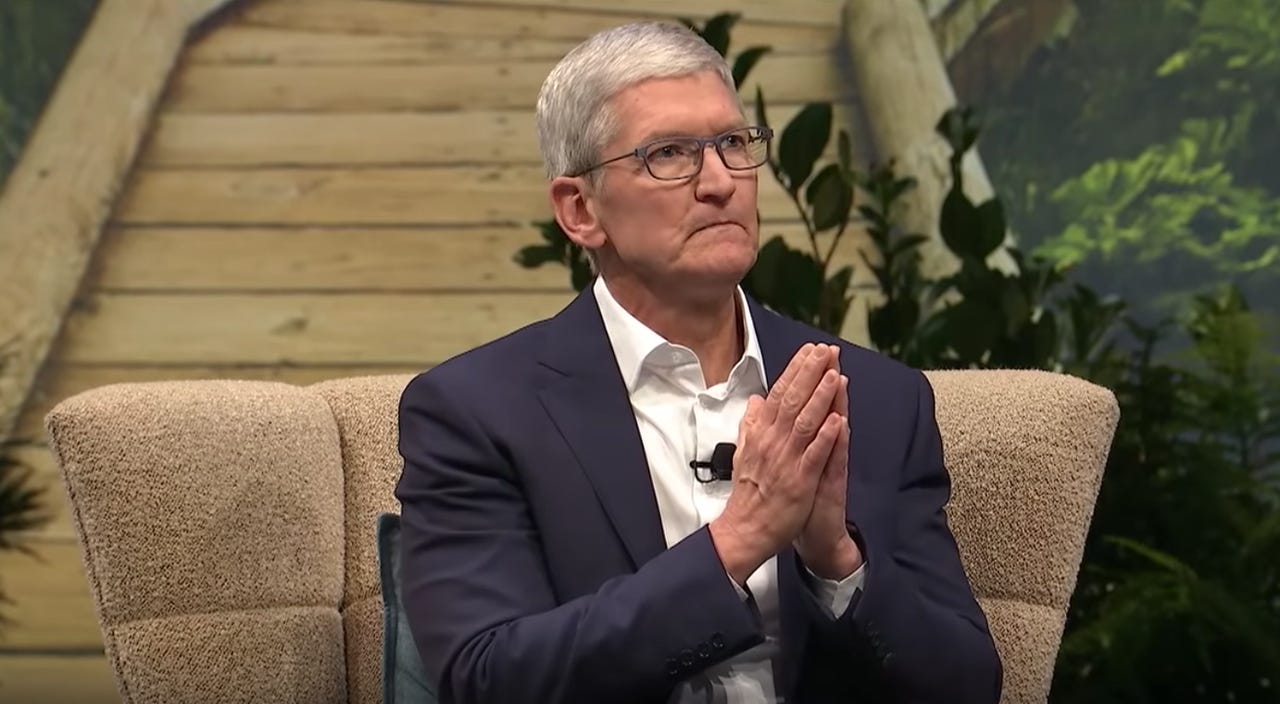Apple's Tim Cook said the strangest thing and I keep wondering why

Can there be a holy monopoly?
I want to be everything to you. I really do.
I realize, however, that I can't be because I don't know enough about, oh, Marvel movies, coding and the alluiring softness of Allbirds.
So I accept my failings and hope you'll be good with that. I'm not so sure Tim Cook feels the same way.
You see, he just gave an interview to the Nikkei Asian Review in which he said one of those things that sound benign, until you realize what's being said.
Cook was addressing the notion -- promulgated by sniffy regulators -- that Apple's App Store operation doesn't take kindly to, well, anything that competes with Apple.
He offered this philosophical thought: "A monopoly by itself isn't bad if it's not abused."
Neither, I hear you snort, are cocaine and Major League Baseball.
I, though, wanted to ponder the nuances here. Cook apparently insisted Apple isn't a monopoly. Why, then, might he be in favor of benign monopolists? Whom could he have in mind?
I used to think PG&E might be benign until it started to cut off my power while holding dinners and wine tastings. But Cook was presumably talking about big, good corporations as opposed to big, bad ones.
- Supreme Court rules against Apple in App Store monopoly case
- Apple under investigation from Japan's FTC for pressuring parts makers: Report
I couldn't help thinking, therefore, about Facebook board member and New Zealand citizenship investor Peter Thiel. A few years ago, he suggested competition just wasn't where it's at. Instead, he mused, creating lasting value ideally ought to involve being a monopoly.
He said: "By 'monopoly,' I mean the kind of company that is so good at what it does that no other firm can offer a close substitute. Google is a good example of a company that went from 0 to 1: It hasn't competed in search since the early 2000s, when it definitively distanced itself from Microsoft and Yahoo!."
It's a painfully tech industry notion that you can be so good at something that no one can defeat you. Why is it, some might wonder, that Facebook is always trying to squish competitors not by being so very good, but by copying what they do?
Then again, I'm not sure Cook would hold up -- Thiel's suggestion -- Google as an example of not-badness. He tends to use it and Facebook as examples of very-heinousness.
This notion of monopoly as a (potentially) good thing began to gnaw at me. After all, the whole notion of market domination is antithetical to the American way of life, even if "The Great Reversal: How America Gave Up On Free Markets" by Thomas Philippon suggests America isn't quite as keen on competition as it used to be.
What, then, could Cook have had in mind? What sort of monopoly could be not bad, if it's not abused?
Oh, I know. He was talking about China.
